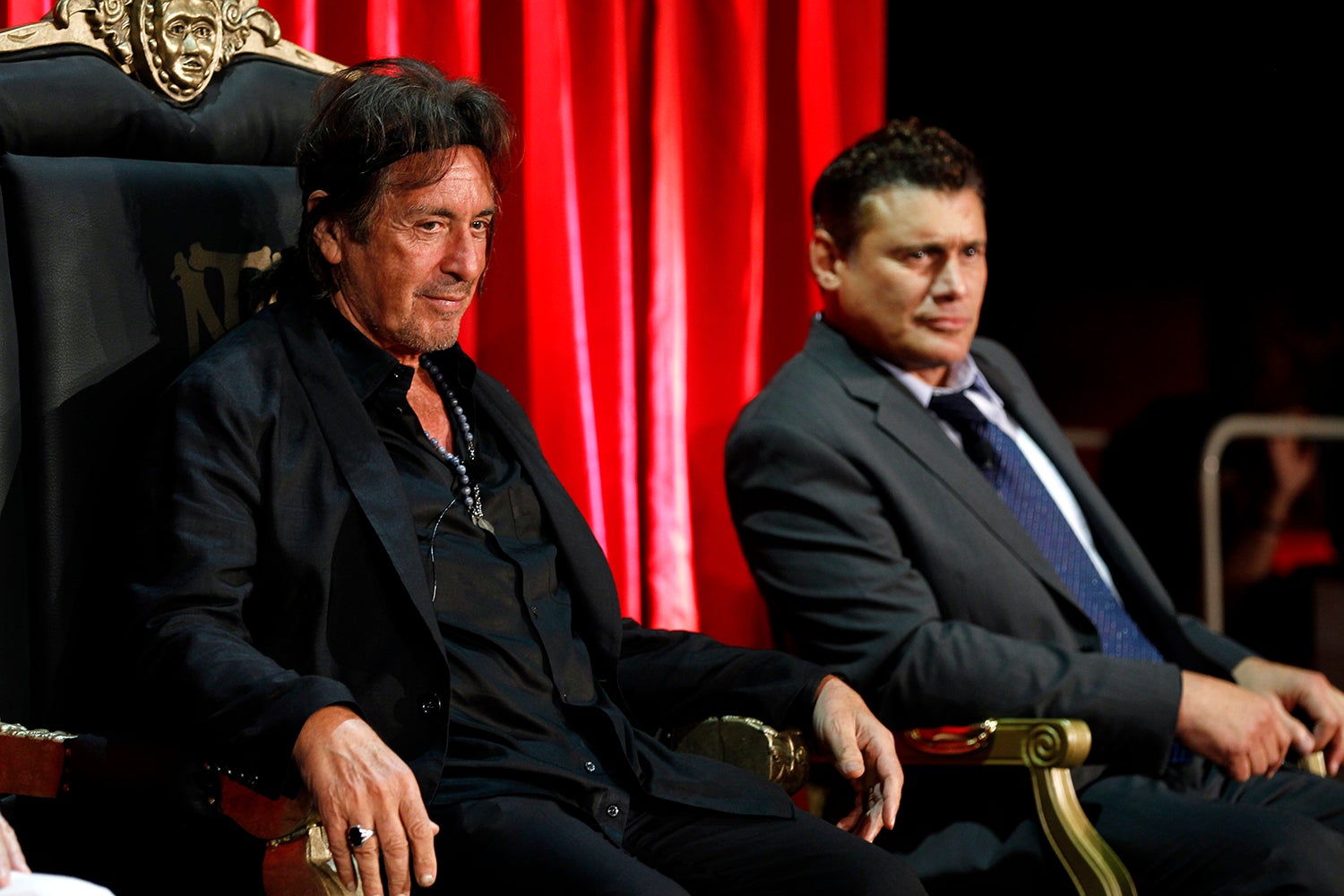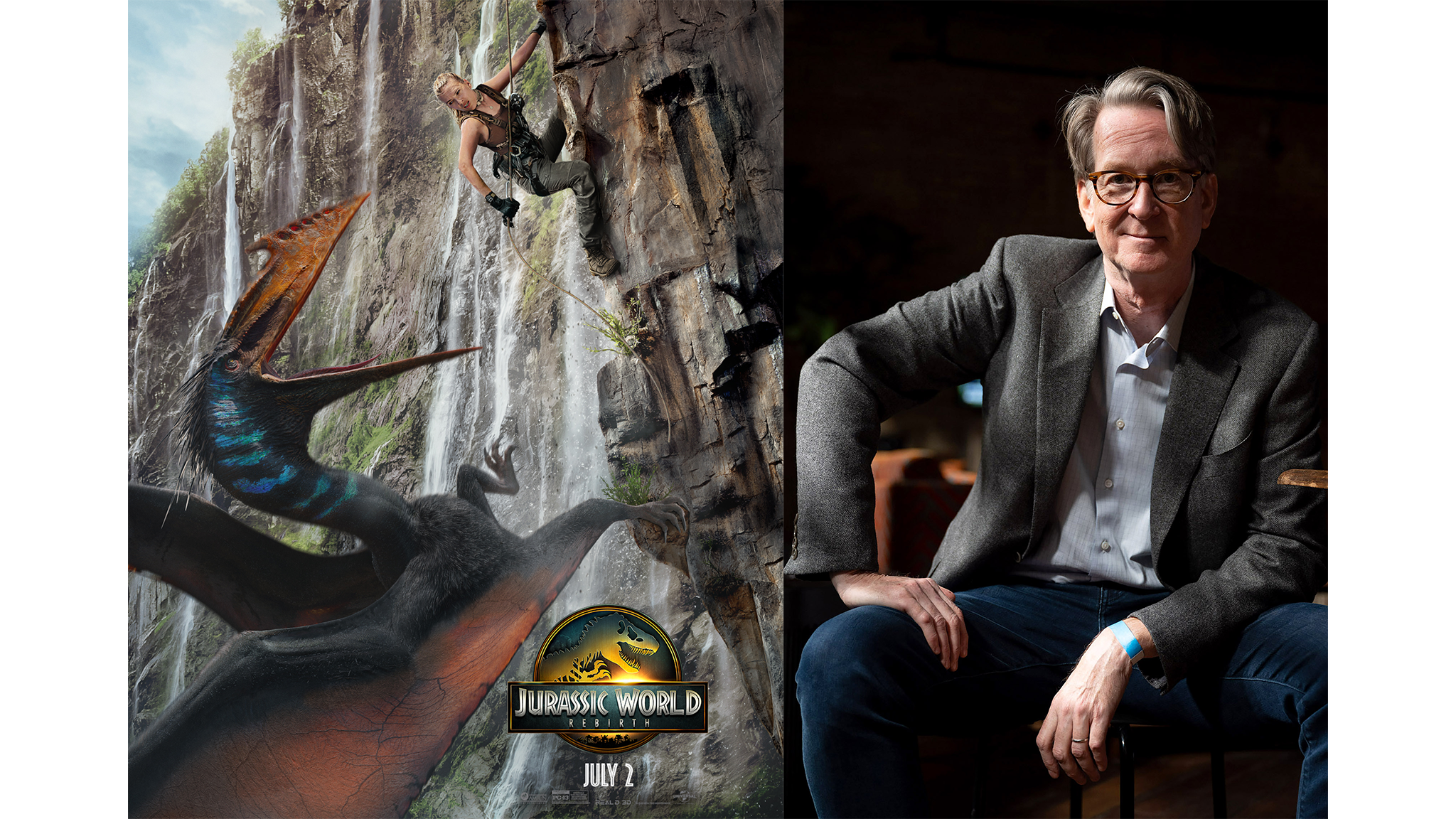The enduring legacy of Al Pacino’s kingpin gangster saga, “Scarface,” may puzzle some — including a few of the creators behind it — but it is undeniable.
Stills from the film have been turned into posters that have littered college dorm walls since its release in 1983. Brad Jordan of the famed Houston group, Geto Boys, donned the moniker, Scarface, after seeing the film.
Author and film critic Glenn Kenny — who explores this complicated and lengthy legacy in his comprehensive book, “The World Is Yours: The Story of Scarface” — said the story of Tony Montana resonates with a lot of ambitious performers.
News with a little more humanity
WPR’s “Wisconsin Today” newsletter keeps you connected to the state you love without feeling overwhelmed. No paywall. No agenda. No corporate filter.
“Tony Montana, like the hip-hop artists who admire him, comes from an impoverished upbringing,” Kenny told WPR’s “BETA.” “Tony has an unrepressed ambition. So, coming from nothing with an unrepressed ambition, that’s a huge thing in hip-hop. And Tony Montana certainly embodies that.”
The title of Kenny’s book is from the thesis-like phrase that hovers both in the 1983 version of the film and the 1932 original “Scarface” starring Paul Muni and directed by Howard Hawks.
It was, in fact, a showing of this 1932 film that Al Pacino stumbled into while in Los Angeles that led to the remake.
“The whole reason that ‘Scarface,’ the 1983 movie, exists is because of the will of Al Pacino and the will of his friend, one time manager and producer Marty Bregman,” said Kenny.
“Paul Muni, who came from Yiddish theater playing this feral Italian American gangster, patterned after Al Capone, named Tony Camonte and Al Pacino, was blown away by this performance. And, like, almost immediately after leaving the theater, it occurred to him to call Marty Bregman, with whom he had not spoken in some time,” Kenny continued. “But he called Marty Bregman because he thought, ‘Well, Marty’s a guy who can get this kind of thing done.’ He says, ‘I think I have something I want to do with you.’”
Bregman and Pacino had been on the outs due to a spat over adapting Ron Kovic’s autobiography, “Born on the Fourth of July,” which would be made eventually by “Scarface” scribe Oliver Stone.
At the time, though, Stone was down on his luck and took the job as a hired gun. He was asked to port the prohibition era story of the heights and pitfalls of ambition from the original movie into the cocaine era of the ‘80s. Stone, himself an avid cocaine user, did the method-actor’s version of research and immersed himself with traffickers and dealers.
“He did the research while doing the drug. He didn’t do the writing while doing the drug,” Kenny clarifies. “He was abusing cocaine, but it was useful when he was going to Miami and then going to Bimini and really hanging out with the gangsters who are involved in the trafficking of the drug, you know, seeing off the cigarette boats from Bimini to Miami.”
Stone’s script was meant to be a grittier picture. He admits the infamous chainsaw scene depicted in the movie was a real-life anecdote he learned from these dealers. However, director Brian De Palma — known as part of a new wave of American filmmakers with Francis Ford Coppola, Martin Scorsese and George Lucas — went with a more operatic approach.
Kenny talked about the disparate visions for the material in his book and how De Palma even had Stone removed from the set a handful of times. De Palma, a fellow iconoclastic filmmaker known for making personal, violent films, was also a hired gun of sorts.
“The most interesting thing, I think, was Brian’s own attitude, which was very workmanlike. He insisted that once he came on board of the project, all he wanted to do was right was do justice to Oliver Stone’s script. And when you talk to Oliver Stone and some of the other people involved in the production, you hear a lot about Oliver Stone’s dissatisfaction with how DePalma handled the script,” Kenny said.
Another area of dissatisfaction for Stone came in the casting of Tony Montana’s wife, Elvira. Stone was insistent on Glenn Close. Producer Bregman went with relative newcomer, Michelle Pfeifer.
Known at the time for less serious roles in “Grease 2” and the “Animal House” rip-off “Delta House,” Pfeifer was anxious for a meatier role. The only problem was that she was so naturally warm as a person for a character that was supposed to be so cold. De Palma worked up a way for her to exude that frostiness.
“Michelle Pfeiffer was very insecure. She was very young. She felt untested and she felt like she was failing all the time. But she was treated well by everybody involved,” Kenny said. “De Palma was also very kind, but he did have one thing that he said to her after every take was done, which is, ‘Did you just smile?’ And, she would say, ‘No, I didn’t smile.’ He’s like, ‘Good.’”
Pacino on the other hand needed very little hand holding. In fact, to hear Kenny explain it, he needed primarily to be reined in. He and Bregman were given carte blanche to do as many takes as needed.
The film has become a touchstone for Pacino along with his roles in the “Godfather” trilogy. However, Michael Bregman, Martin’s son, rumors that the role might be one that Pacino wishes was not part of his legacy. Kenny’s not so sure if that’s how Pacino really feels.
“’Scarface’ gets much more applause than the film that won him his Oscar, ‘Scent of a Woman.’ But Michael Bregman feels that Al feels that ‘Scarface’ isn’t dignified enough,” said Kenny.
Glenn goes on to say that Pacino does fully embrace the audience’s love with the character and has no problem playing the hits at public appearances.
“When Pacino’s in front of a crowd and mentions ‘Scarface’ and everybody goes, ‘Heeeeeyyyy,’ then he loves to talk about ‘Scarface’,” Kenny quipped.
Glenn said that enduring legacy of “Scarface” may be its story of ambition versus the visceral thrill of gangsterism, like Scorsese’s “Goodfellas” that Kenny’s previous book “Made Men” specialized in.
“The aspiration or the intrigue comes from becoming a kingpin, making it to the top,” said Kenny of “Scarface.” “And that kind of almost nihilistic dedication to making it to the top is the fascination of the Tony Montana character.”



